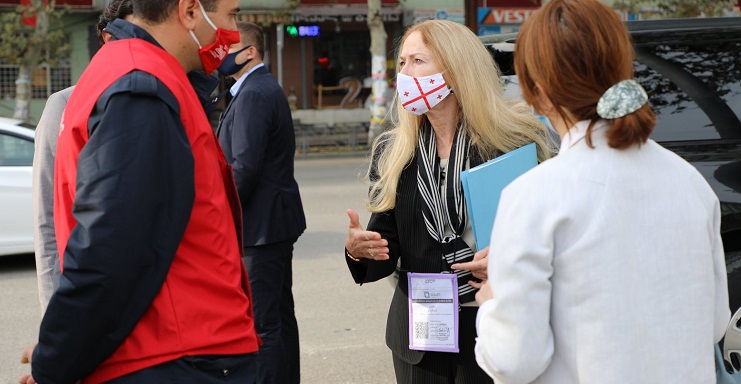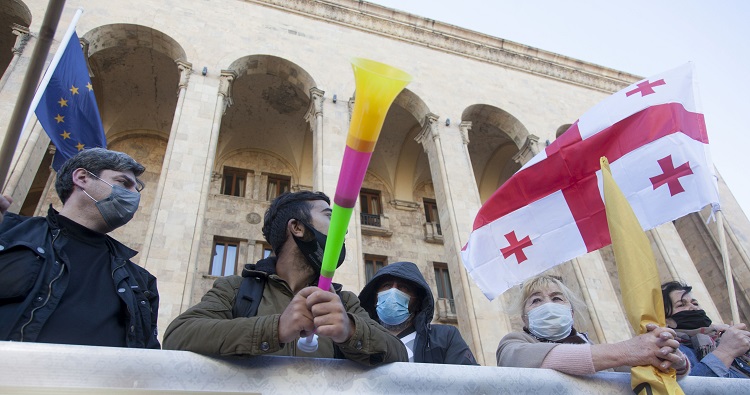US ambassador disapproves of bill which strips opposition parties of state funding

US Ambassador Kelly Degnan is one of the mediators in the talks between the ruling party and the opposition following the October 31 elections. Photo: US Embassy press office.
The US Ambassador to Georgia Kelly Degnan has told Formula TV channel that she disapproves of a ruling Georgian Dream party-initiated bill which will strip opposition parties of state funding and free media time if they refuse to take up their mandates in parliament.
Degnan has expressed hope that the bill will be revised before its approval, noting that she does not welcome any bill which may create problems for the opposition’s development and restrict their access to media.
In an exclusive interview Degnan said that what Georgia needs now is a strong and a developed opposition and a responsible and effective ruling party.
She expressed hope that the ruling party and the opposition will find ways to end the current political crisis in the talks mediated by her and other foreign ambassadors.
Degnan stated that coming up with a solution requires political will and placing state interests above party interests.
The Georgian parliament passed a bill in its first reading earlier today which strips parties of state funding if they refuse to take up their mandates in parliament.
 Degnan said that in a long term perspective a single-party parliament will be damaging for Georgian interests. Photo: Nino Alavidze/Agenda.ge.
Degnan said that in a long term perspective a single-party parliament will be damaging for Georgian interests. Photo: Nino Alavidze/Agenda.ge.
The bill also strips the parties of free media time and rejects election registration for the parties whose leaders violate the state constitution.
Per the bill, the parties will not receive state funding if at least half of their MPs do not enter the legislature.
Opposition MPs from six of eight parties which have won seats in parliament have already requested the suspension of their status.
They say that the elections were fabricated and are now demanding repeat elections.
Along with making the request, the opposition parties are ready to continue election-related talks with the ruling Georgian Dream party.
The diplomatic corps is now mediating talks between the ruling party and the opposition to help the parties end the political crisis.
The ruling party says that no repeat elections will take place as the elections were held ‘in line with democratic standards.’
They say that the recent recognition of the mistake by ISFED NGO in its parallel vote count data is yet further evidence that no fabrication took place.
 Tweet
Tweet  Share
Share